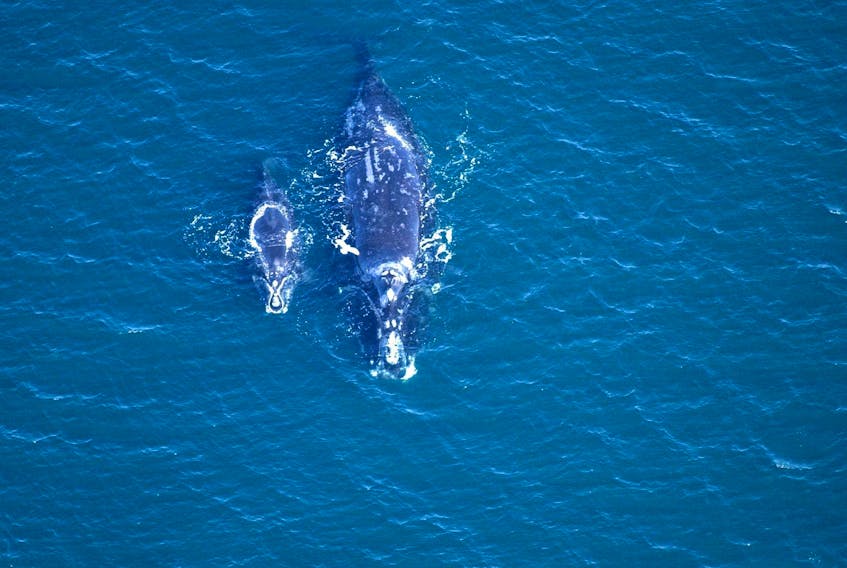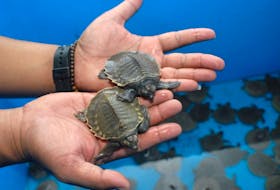When it comes to protection on the high seas, marine animals are essentially on their own.
Conservation measures such as shipping lane restrictions that protect North Atlantic right whales only exist within a certain distance of a particular country’s coast. Beyond those shaded parts on the marine protected areas maps, “there’s just very little biodiversity governance,” said Susanna Fuller, vice-president of operations and projects for the conservation group Oceans North.
But she and other marine conservationists are hoping that may change this year. Talks will resume in March at the United Nations that aim to create a legal framework that would allow for the creation of mobile marine protected areas or MMPAs.
“For example, the Northwest Atlantic Fisheries Organization, which manages fisheries just outside the 200 mile limit off Newfoundland and Labrador, has put in place several areas where they don’t allow bottom trawling,” Fuller said in an interview Monday.
“They’ve decided (in) coral and sponge areas which are significant, they’ve banned all bottom fishing.
“But what’s happening right now is that there’s oil and gas exploration in that area so if we had something like the oceans act of the high seas, . . . then there would be a mechanism so say actually no, these areas are protected from fishing, we’re not going to allow oil and gas development. But there’s just no law that does that.”
Fuller noted there have been temporary closures for mobile species in the past, such as leatherback turtles in the Northwest Atlantic. And the changing fisheries closures off Nova Scotia to protect right whales might be considered a “mobile” marine protected area.
But the United Nations high seas discussions, which have been going on for 15 years, would represent an unprecedented global agreement.
In previous decades, an agreement on this scale wouldn’t have been feasible. But as a recent paper in the journal Science argues, advances in monitoring technology and policy mean a mobile marine protected area system could be enforced.
The lead author of that study, Washington state ocean scientist Sara Maxwell said a traditional protected area, whether on land or in the ocean, has set boundaries and GPS co-ordinates that are associated with them.
"The generation that I'm teaching now, their urgency about climate change is really really high."
- Ocean scientist Sara Maxwell
“They don’t move,” Maxwell said in a recent interview. “At least if they do change, it’s accompanied by a big bureaucratic process with lots of stakeholders. It goes through something that might happen every 50 years if you’re lucky. Whereas in the case of mobile marine protected areas, the boundaries would be defined by things that move and shift with time.”
For example, if a monitoring project using hydrophones in the water picked up the sound of a whale in a particular area, “you might have some sense of the distance away that animal is, and you could theoretically make some sort of a boundary based on that.”
Asked how fishermen or the shipping industry could keep on top of such fleeting protection zones, Maxwell said modern communication systems such as apps make real-time adjustments possible.
For instance, she’s involved with a program called EcoCast in California that provides daily-changing models for the fishing industry aimed at preventing unwanted bycatches and other impacts on the marine environment.
Given the challenges presented by climate change, human activity on the oceans and plastics pollution, Maxwell said it’s crucial that we think innovatively about protection measures.
“Because particularly for the generation that I'm teaching now,” said Maxwell, a professor at the University of Washington, “their urgency about climate change is really really high. I try to keep everyone's hope . . . alive by some degree. … It's hard.
“There are some folks in my university that actually teach a course on eco-grief, basically how to how to manage the grief that comes along with realizing the state that our planet is in.”









